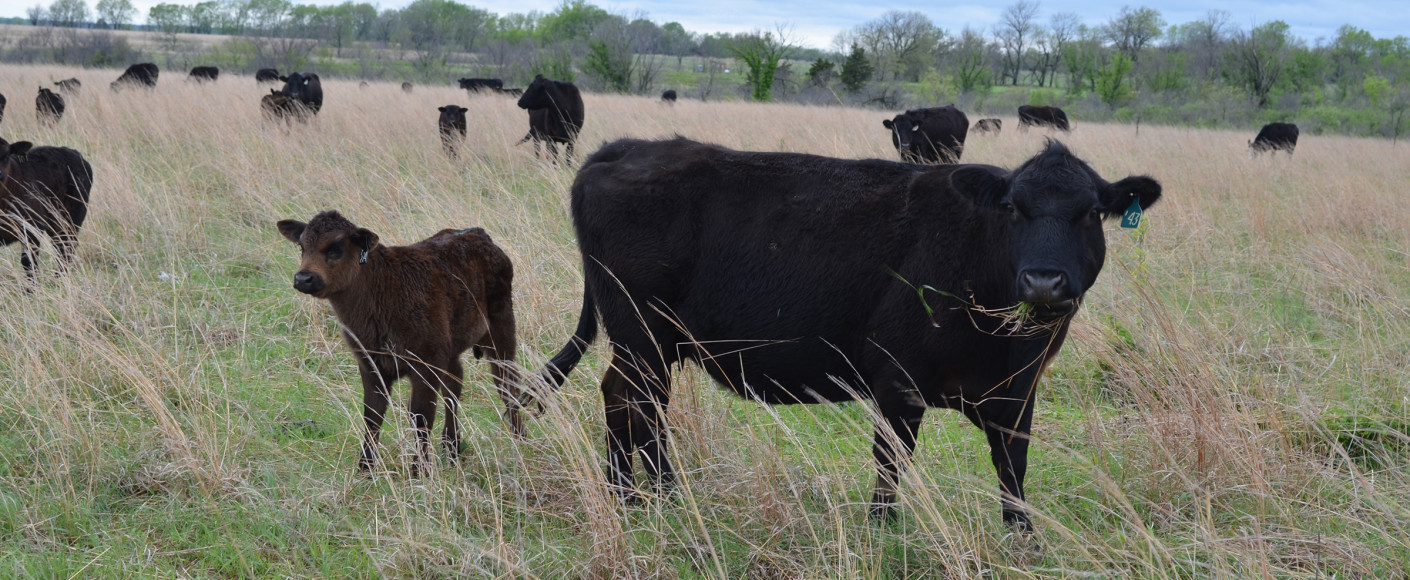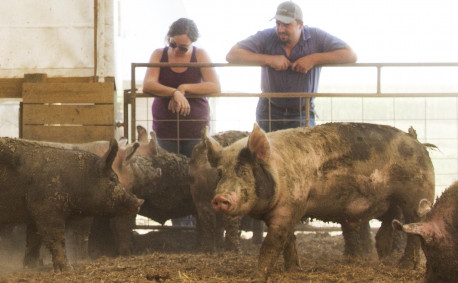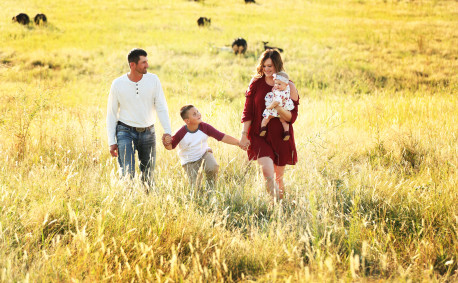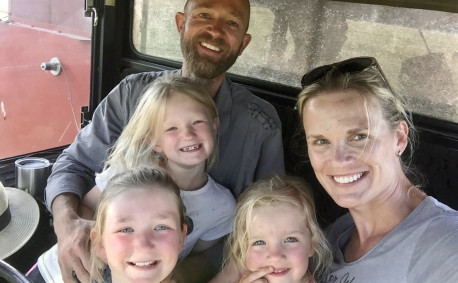Animal Welfare in Food Production
“If you’re raising animals for slaughter, how can you say they’re well cared for?”
People in animal agriculture get this question a lot and it’s an important topic to discuss.
Not everyone eats meat. We all have the right to make individual choices about our diets. Plant-based or meat, that’s up to you. We’re not here to change your mind. But if you’re curious about how meat is produced, it’s important to know that animal welfare and animal agriculture go hand-in-hand.
Healthy Animals Mean Healthy Business
It can be easy to forget that the men and women who work in agriculture perform a job for income. Their job happens to be raising food for us to eat. Many of them work on family farms incorporated as businesses. For these businesses to stay afloat and feed the world, they — like any other business — must make a profit. To make a profit, they must have a good product to sell.
What makes a good product when it comes to meat? In the grocery store, you might look at the USDA quality grade. You might look for marbling and fat distribution. You would definitely want your food to be safe to eat and free from contamination. All of these things come down to how the animals are raised, which is where animal welfare plays an important role. Healthy animals produce a higher quality product. So, farmers and ranchers do everything they can to make sure their animals are healthy.
Perspectives on the Business of Farming and Ranching
“Happy cows are the best for business.” Matt Perrier, Dalebanks Angus
“We are really proud of our product. We’re proud of the beef we produce and how we produce it.” Kelsey Pagel, Sustainable Bites
“Our main focus is the health and wellness of our cattle and in the end, bringing a superior product to customers. We take a lot of pride in the fact that we raise our cattle on an appropriate diet for their age and weight to get that delicious flavor.” Kelli Kohman, Kohman Meats
“We provide for our cattle because they provide for us.” Amy Perrier, Dalebanks Angus
Animal Care and Welfare
Raising hogs and cattle is not a set-it-and-forget-it occupation. Even though many of the animals live outside, farmers and ranchers are constantly looking after them to make sure they have the food, water and medical care they need. They also ensure the animals appear healthy, and there are no signs of distress or discomfort.
Depending on the season, feeding might require driving hay or grain out to a herd or moving them to another area to graze. Making sure cattle have access to water could require chopping the ice, covering a pond or using special water heaters in winter. And making health and welfare checks allows ranchers to monitor activity and behavior for signs of sickness.
When animals get sick, farmers want them to get better. Sometimes, this requires using antibiotics. There’s a misconception animals are pumped full of antibiotics. This simply isn’t true and doesn’t make sense on several levels.
Treatment and dosing are closely monitored by veterinarians to ensure the correct amount of medicine is administered. Too little and the animal won’t get better. Too much and the animal might develop resistance to the medicine — just like people and pets do.
There’s also a business aspect to prudent antibiotic use. Medicine for animals is expensive just like medicine for people is. Farmers administer medicine only when they need to, and only what the condition calls for. That’s sound business.
Stress is also an important component in animal welfare. Studies have shown animal stress impacts the quality of meat. To help keep stress levels low, many operations use special equipment designed by a pioneer in the humane treatment of animals, Temple Grandin, Ph.D. A professor of animal science at Colorado State University — as well as a world-famous activist for the autism community — Temple designed equipment to reduce stress while handling, corralling and transporting livestock. Her designs have made a big impact in compassionate care for animals.
Perspectives on Animal Welfare
“Pig farming is 365 days a year. It doesn’t matter if it’s snowing, raining, 20 below or 110 degrees, you’re out there making sure the pigs are fed and taken care of. You put their comfort ahead of your own.” Emily Roush, R Family Farms
“We make sure they’re well taken care of and healthy. We know if an animal is limping or has something in its eye.” Frances Graves, Graves Land and Cattle
“We use [antibiotics] judiciously. We use them only when we have to. … We try to do as many things as we can to limit stress on these cattle.” Matt Perrier, Dalebanks Angus
Purpose of Animal Agriculture
Yes, hogs and cattle are raised to be harvested. But they have a purpose after harvesting, and that’s to feed our growing population.
They are part of a balanced ecosystem in the plains of the Midwest and beyond. Here, the land supports growing native grasses and certain crops like field corn. Many of these plants aren’t suitable for human consumption, but they provide high quality food for hogs and cattle. These animals convert those plants into protein and other nutrients we can consume. They are bred for this purpose. And, in the process, they are well cared for.
Perspectives on Purpose
“Everything serves a purpose and these animals have a role. That doesn’t mean we’re not taking care of them. We’re caretaking their lives through these stages of development. There’s a lot of honor in having that position, in serving our food supply.” Frances Graves, Graves Land and Cattle
“I think using animals for food is an ethical thing to do, but we've got to do it right. We've got to give those animals a decent life, and we've got to give them a painless death. We owe the animals respect.” Temple Grandin, Ph.D.
See for Yourself
If you want to learn more about how your food is produced, we encourage you to connect with farmers and ranchers in your community and beyond. Many share their experiences on social media. Some even encourage visitors to their farms. All are passionate and caring about what they do.
Perspectives on Connecting with Farmers
“We really enjoy connecting with the people who eat our pork. All in all, we’re like them, we just raise animals for a living.” Kaden Roush, R Family Farms
“People want to know where their food comes from. We’ve put a lot of stock into educating our customers on what these terms mean and why we do things the way we do them.” Kelli Kohman, Kohman Meats
“Farmers are some of the most compassionate people.” Frances Graves, Graves Land and Cattle




